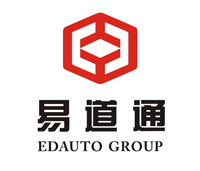In recent years, China’s auto industry has made significant progress in the global market, with a growing number of foreign consumers and experts beginning to recognize the technology and quality of Chinese vehicles. This article will explore the rise of Chinese auto brands, the driving forces behind technological innovation, and the challenges and opportunities in the international market.
1. The rise of Chinese auto brands
The rapid development of China’s auto market has spawned a number of internationally competitive auto brands, including Geely, BYD, Great Wall Motors, and NIO, which are gradually emerging globally.
Geely Auto, one of China’s largest privately-owned automakers, has successfully expanded its global presence in recent years through acquisitions of international brands such as Volvo and Proton. Geely has not only established a strong presence in the domestic market but has also actively expanded overseas, particularly in Europe and Southeast Asia. Several of its electric vehicle models, such as the Geometry A and Xingyue, have received widespread acclaim from consumers.
BYD, renowned for its electric vehicle technology, has become a major player in the global electric vehicle market. BYD’s battery technology is highly regarded within the industry, and its “Blade Battery” is renowned for its safety and long battery life, attracting numerous international partners. BYD has steadily gained market share in Europe and the Americas, particularly in the public transportation sector, where its electric buses are already in use in numerous countries.
Great Wall Motors is popular for its SUVs and pickup trucks, particularly in Australia and South America. Its Haval series of SUVs has earned consumer trust thanks to its value and reliability. Great Wall is also actively expanding into the international market, planning to launch more models tailored to local needs in the coming years.
As a premium Chinese electric vehicle brand, NIO has attracted significant international attention with its unique battery-swapping technology and intelligent features. The launch of NIO’s ES6 and EC6 models in the European market marks the rise of Chinese premium electric vehicle brands. NIO not only strives for product excellence but also continuously innovates in user experience and service, winning the hearts of consumers.
2. Driving Force of Technological Innovation
The rise of China’s auto industry is inseparable from the driving force of technological innovation. In recent years, Chinese automakers have continuously increased their R&D investment in areas such as electrification, intelligentization, and connectivity, and have achieved remarkable results.
Electrification is a key direction for the transformation of China’s automotive industry. With the global emphasis on environmental protection and sustainable development, demand for electric vehicles is increasing. The Chinese government actively supports the development of electric vehicles, promoting their widespread adoption through policy subsidies and infrastructure development. Many Chinese automakers have launched electric models, covering every market segment, from economy to luxury.
In terms of intelligence, Chinese automakers have also made significant progress in autonomous driving and connected vehicle technologies. Led by tech giants like Baidu, Alibaba, and Tencent, many automakers have begun exploring intelligent driving solutions. Emerging brands like NIO, Li Auto, and Xpeng are continuously innovating in autonomous driving technology, launching a variety of intelligent driver assistance systems that enhance driving safety and convenience.
Furthermore, the application of connected technologies has also brought new opportunities to China’s automotive industry. Through connected vehicle technology, cars can not only exchange information with other vehicles but also connect with transportation infrastructure and cloud platforms, enabling intelligent traffic management. This technology not only improves transportation efficiency but also lays the foundation for the development of future smart cities.
3. Challenges and Opportunities in the International Market
While Chinese automakers have achieved a certain level of recognition in the international market, they still face numerous challenges. First, brand awareness and consumer trust still need to be improved. Many foreign consumers still perceive Chinese brands as low-priced and low-quality. Changing this perception is a crucial task for Chinese automakers.
Secondly, competition in the international market is becoming increasingly fierce. Traditional automakers and emerging electric vehicle brands are increasing their presence in the Chinese market, putting pressure on Chinese automakers. This is particularly true in the European and North American markets, where the strong competitiveness of brands like Tesla, Ford, and Volkswagen in the electric vehicle sector poses significant challenges to Chinese automakers.
However, opportunities also exist. With the growing global demand for electric and smart cars, Chinese automakers have a strong competitive advantage in technology and market layout. By continuously improving product quality, strengthening brand building, and expanding international cooperation, Chinese automakers are expected to capture a larger share of the global market.
In short, the Chinese auto industry is experiencing rapid development, characterized by rising brands, technological innovation, and a mix of challenges and opportunities in the international market. Whether Chinese automakers can achieve even greater breakthroughs in the global market remains a topic of continued concern.
Email:edautogroup@hotmail.com
Phone / WhatsApp:+8613299020000
Post time: Aug-28-2025



